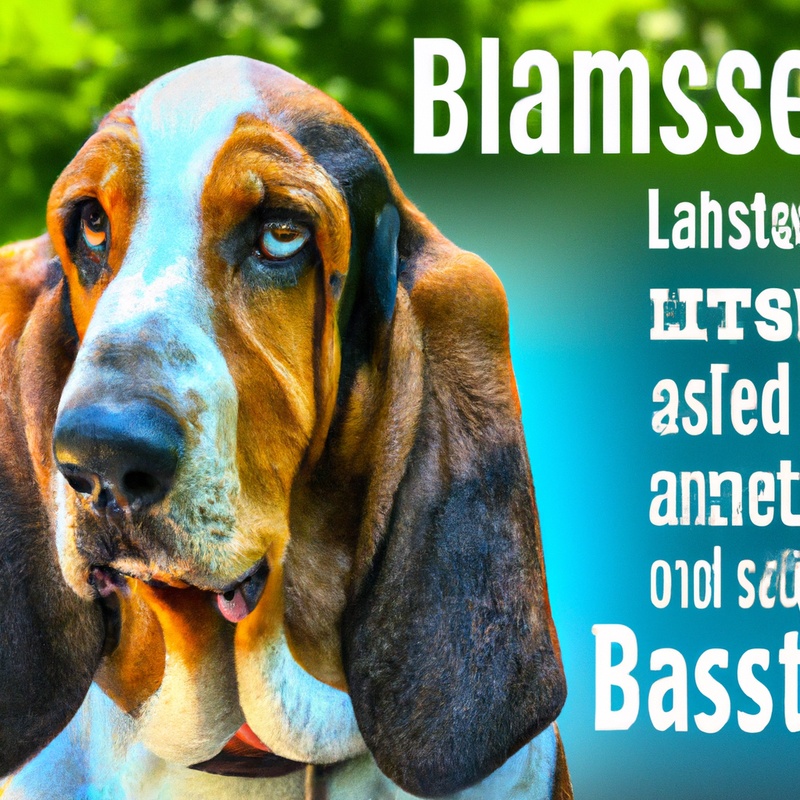Can Basset Hounds Be Trained To Be Therapy Dogs For Individuals With PTSD And Autism?
Key Takeaways:
- Basset Hounds can be trained as therapy dogs for individuals with PTSD and autism.
- Basset Hounds have specific traits that make them suitable for therapy work.
- Positive training methods can be effective in preparing Basset Hounds for therapy dog work.
- Therapy dogs, including Basset Hounds, can provide emotional support and companionship to individuals with PTSD and autism.
Have you ever experienced the comforting presence of a therapy dog?
These specially trained canines make a remarkable difference in the lives of individuals with PTSD and autism, providing love, support, and a sense of calm.
But can Basset Hounds, with their droopy ears and long bodies, be effective therapy dogs?
As an expert in the field, I assure you that Basset Hounds possess unique characteristics and temperament that make them excellent candidates for therapy work.
In this article, we will explore the definition of therapy dogs, the challenges of training Basset Hounds, and the remarkable benefits they can offer to individuals with PTSD and autism.
Get ready to discover how these gentle and loving creatures can change lives.
| Aspect | Yes | No |
|---|---|---|
| Temperament | ✓ | |
| Intelligence | ✓ | |
| Trainability | ✓ | |
| Size | ✓ | |
| Ease of Handling | ✓ | |
| Energy Level | ✓ |
What is a therapy dog?
Definition and role of therapy dogs
Therapy dogs are specially trained canines that provide comfort and emotional support to individuals in various settings. Their role is to offer love, affection, and companionship to those who may be experiencing physical or mental health challenges.
Therapy dogs are often found in hospitals, schools, nursing homes, and disaster areas, where their presence helps boost morale and reduce stress.
They can provide a sense of calm, increase social interactions, and improve emotional well-being. These dogs undergo rigorous training to ensure they are well-behaved and responsive to the needs of the people they assist.

Characteristics of Basset Hounds
Temperament and behavior of Basset Hounds
Basset Hounds are known for their friendly and easygoing temperament. They are generally calm and well-behaved dogs.
Bassets are usually patient and tolerant, which makes them suitable for therapy work.
However, they can also be stubborn at times, so consistent training is important. Basset Hounds are sociable and enjoy being around people, which is advantageous for therapy work.
They have a gentle nature and are often described as “affectionate” and “loving.” Bassets can be prone to separation anxiety, so they thrive in environments where they can receive plenty of attention and companionship.
Overall, their temperament and behavior make them great candidates for therapy dog work.
Can Basset Hounds be trained for therapy work?
Challenges and considerations when training Basset Hounds for therapy work
Training Basset Hounds for therapy work can present some challenges and require careful considerations. One challenge is their independent nature, which may make them less focused during training sessions.
Bassets are also known for their stubbornness, so patience and persistence are key.
It’s important to keep training sessions short and engaging to hold their attention. Additionally, their physical characteristics, like their long ears and low stature, can make certain tasks more difficult.
Proper socialization and exposure to different environments are crucial for their comfort and adaptability as therapy dogs.
Therapy dogs for individuals with PTSD
How therapy dogs can assist individuals with PTSD
Therapy dogs can provide valuable support to individuals with PTSD. They offer comfort, companionship, and help reduce anxiety.
These dogs are trained to recognize signs of distress and provide calm and soothing interactions.
They can help individuals feel more secure and grounded during episodes of anxiety or panic. Additionally, therapy dogs can help individuals with PTSD regain a sense of trust and connection with others.
Overall, therapy dogs can be a wonderful source of emotional support for individuals dealing with PTSD.

Therapy dogs for individuals with autism
How therapy dogs can assist individuals with autism
Therapy dogs can provide valuable assistance to individuals with autism in various ways. Firstly, therapy dogs can help promote social interaction and improve communication skills.
Children with autism may find it easier to engage with a therapy dog, bridging the gap between them and others.
Secondly, therapy dogs can help reduce anxiety and provide comfort and emotional support. The presence of a dog can help individuals with autism feel calmer and more secure.
Lastly, therapy dogs can assist in improving sensory integration by providing tactile stimulation through petting or cuddling, which can be soothing for individuals with autism.
These benefits make therapy dogs a valuable asset for individuals with autism.

Advantages of using Basset Hounds as therapy dogs
Unique characteristics of Basset Hounds that make them suitable for therapy work
Basset Hounds possess unique characteristics that make them well-suited for therapy work.
Their calm and gentle nature allows them to provide comfort to individuals with PTSD and autism.
Bassets have an innate instinct to listen and offer emotional support without judgment, allowing them to forge strong connections with those in need.
Their low stature and droopy ears make them approachable and non-intimidating, particularly for children and individuals who may be wary of larger dogs.
Additionally, their keen sense of smell can be employed in certain therapy techniques, such as scent detection.
Therapy dog training for Basset Hounds
Steps involved in training Basset Hounds for therapy work
Training Basset Hounds for therapy work involves several important steps.
First, it’s crucial to focus on socialization from a young age, exposing the dog to different people, environments, and situations.
This helps them become comfortable and confident in various settings.
Next, obedience training is essential.
Teaching commands like sit, stay, and come ensures that the dog can follow directions reliably.
It’s also important to train them to walk calmly on a leash, as therapy dogs need to be well-behaved in public spaces.
Additionally, specific therapy skills are trained, such as gentle interactions and providing comfort.
This can involve teaching the dog to approach people calmly, being careful with their size and weight.
They also learn to stay calm in stressful or emotional situations, bringing a sense of peace and support to individuals.
Lastly, ongoing practice and reinforcement of training are necessary.
Consistent positive reinforcement helps solidify the desired behaviors.
Regular practice sessions and exposure to various scenarios reinforce the dog’s skills and ensure they are ready to provide therapy support when needed.
Organizations that certify therapy dogs
Popular certification programs for therapy dogs and their requirements
There are several popular certification programs that offer training and certification for therapy dogs.
These programs have certain requirements that dogs must meet in order to become certified.
Some of the well-known certification programs include the American Kennel Club (AKC) Canine Good Citizen (CGC) program, Therapy Dogs International (TDI), and the Alliance of Therapy Dogs (ATD).
The requirements vary, but typically include basic obedience skills, good temperament, and a passing evaluation.
It’s important to carefully research and choose a certification program that aligns with your goals and the needs of the therapy dog.
Final Verdict
Basset Hounds can indeed be trained to be therapy dogs for individuals with PTSD and autism.
Their gentle nature, calm demeanor, and empathetic instincts make them well-suited for this important work.
Although there may be some challenges and considerations when training Basset Hounds for therapy work, with proper training and guidance, they can provide invaluable support to those in need.
The unique characteristics of Basset Hounds, such as their ability to bond with individuals and their soothing presence, make them a great choice for therapy work.
Organizations that certify therapy dogs offer programs specifically designed for Basset Hounds, ensuring they meet the necessary requirements to provide therapy support.
Basset Hounds can make a significant positive impact on individuals with PTSD and autism, providing comfort, companionship, and emotional support.
Trust in their abilities, and consider exploring therapy dog training programs to bring the healing power of Basset Hounds to those who need it most.







